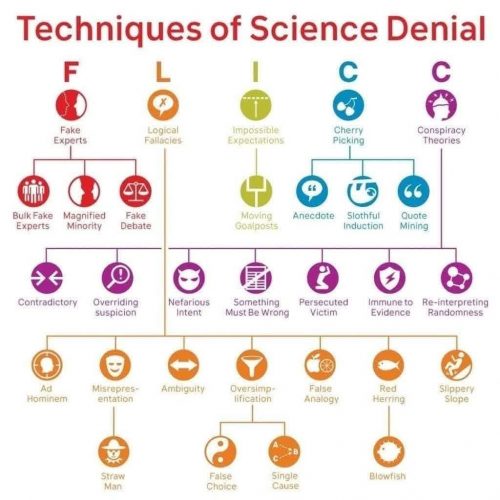Now, both Jerry Coyne and Steven Pinker have announced their resignation from the honorary board at the FFRF. Good. They were a terrible influence, and their departure strengthens the FFRF as a defender of reason.
Their latest post on their website declares Freedom From Religion Foundation supports LGBTQIA-plus rights. They admit that they erred in permitting someone (Coyne, of course) to publish an article in their newsletter that was ignorantly prejudicial against transgender individuals.
However, advocacy is rarely perfect, and progress is not always linear. Recently, we published a guest blog post as part of an effort to provide a forum for various voices within the framework of our mission. Although we included a disclaimer that the viewpoints expressed within the post were not necessarily reflective of the organization, it has wrongfully been perceived as such.
Despite our best efforts to champion reason and equality, we recognize mistakes can happen, and this incident is a reminder of the importance of constant reflection and growth. Publishing this post was an error of judgment, and we have decided to remove it as it does not reflect our values or principles. We regret any distress caused by this post and are committed to ensuring it doesn’t happen again.
Moving forward, we are reviewing our content guidelines and internal processes to ensure our public messaging consistently reflects our values. We are committed to learning from this experience.
We stand firmly with the LGBTQIA-plus community and their allies in advocating for equality, dignity and the freedom to live without fear of religiously motivated discrimination. Our mission to keep religion out of government is inextricably linked to preserving and advancing these fundamental rights.
Together, we will continue to champion a society where all people — no matter their sexual orientation, gender identity, beliefs or nonbeliefs — are treated equally under the law.
That article is currently flooded with comments criticizing the FFRF — many of them seem to be coming from the horde of haters at Coyne’s blog. The gist of many of their comments seems to be that the FFRF is the transphobic one, which is ludicrous and little more than a childish playground taunt. I think we can ignore that nonsense.
Some of them are claiming that Coyne’s claim that sex is totally binary is scientific, and that it is unscientific to argue for a more complex continuum of traits. This is also nonsense. Don’t argue with me, though, take it up with the Society for the Study of Evolution’s position on transgender identity from back in 2018.
We, the Council of the Society for the Study of Evolution, strongly oppose attempts by the Department of Health and Human Services (HHS) to claim that there is a biological basis to defining gender as a strictly binary trait (male/female) determined by genitalia at birth. Variation in biological sex and in gendered expression has been well documented in many species, including humans, through hundreds of scientific articles. Such variation is observed at both the genetic level and at the individual level (including hormone levels, secondary sexual characteristics, as well as genital morphology). Moreover, models predict that variation should exist within the categories that HHS proposes as “male” and “female”, indicating that sex should be more accurately viewed as a continuum.* Indeed, experiments in other organisms have confirmed that variation in traits associated with sex is more extensive than for many other traits. Beyond the false claim that science backs up a simple binary definition of sex or gender, the lived experience of people clearly demonstrates that the genitalia one is born with do not define one’s identity. Diversity is a hallmark of biological species, including humans. As a Society, we welcome this diversity and commit to serving and protecting members regardless of their biological sex, gender identity or expression, or sexual orientation.
*Here we are speaking of the multi-dimensional aspects that underlie male-ness and female-ness, including hormones, physiology, morphology, development, and genetic aspects. We acknowledge that many of these aspects are bimodal. Furthermore, some of these aspects are discrete categories (e.g., XX/XY, SRY presence/absence, gamete size, sperm production vs egg production, presence/absence of certain genitalia), but these categories don’t always align within individuals, are not always binary, and should be irrelevant to the determination of a person’s legal rights and freedoms.
There’s a second letter there, too.
As scientists, we write to express our concerns about the attempt by the Department of Health and Human Services (HHS) to claim that there is a biological basis to defining gender as a strictly binary trait (male/female) determined by genitalia at birth.
Variation in biological sex and in gendered expression has been well documented in many species, including humans, through hundreds of scientific articles. Such variation is observed at both the genetic level and at the individual level (including hormone levels, secondary sexual characteristics, as well as genital morphology). Moreover, models predict that variation should exist within the categories that HHS proposes as “male” and “female”, indicating that sex should be more accurately viewed as a continuum. Indeed, experiments in other organisms have confirmed that variation in traits associated with sex is more extensive than for many other traits. Beyond the incorrect claim that science backs up a simple binary definition of sex or gender, the lived experience of people clearly demonstrates that the genitalia one is born with do not define one’s identity.
Diversity is a hallmark of biological species, including humans. Our three scientific societies represent over 3000 scientists, many of whom are experts on the variability that is found in sexual expression throughout the plant and animal kingdoms. If you wish to speak to one of our experts or receive peer-reviewed papers that explain why there is a continuum of sexual expression, please contact us at [email protected].
Sincerely,
Dr. Hopi Hoekstra
President, Society for the Study of Evolution
Professor, Harvard UniversityDr. Sharon Strauss
President, American Society of Naturalists
Professor, University of California, DavisDr. Susana Magallón
President, Society of Systematic Biologists
Professor, Universidad Nacional Autónoma de México
Hmmm. Hoekstra has published with Coyne in the past, so maybe that will have some weight with him.
I look forward to Coyne’s resignation from the SSE, as well. Or maybe he’s waiting and hoping for a purge of all those woke scientists from the Society? He might get his wish, given the ascendancy of the ideology he favors in our government.
Breaking news: Richard Dawkins has also resigned from the FFRF! And there was much rejoicing!






